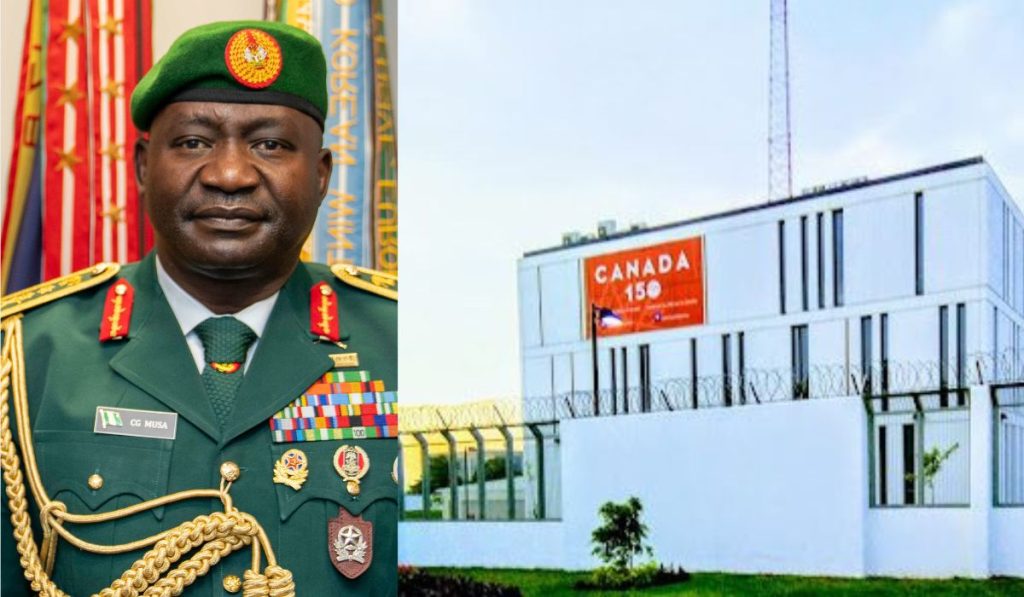
In what can only be described as a diplomatic affront, the Canadian High Commission in Nigeria has reportedly denied visas to Nigeria’s Chief of Defence Staff and his delegation. This decision is not only embarrassing but also raises serious concerns about Canada’s approach to its relationship with Nigeria, especially in matters of security cooperation and mutual respect between sovereign nations.
For a country that prides itself on diplomacy and international collaboration, Canada’s refusal to grant visas to high-ranking military officials from Nigeria reeks of inconsistency, if not outright disregard. The Chief of Defence Staff, by virtue of his office, is not just another visa applicant. He represents Nigeria’s security apparatus, and his visit—presumably for engagements of strategic importance—should have been treated with the seriousness it deserves.
This incident underscores a growing trend where Western embassies in Nigeria act with impunity, rejecting visa applications from top government officials, business leaders, and even scholars without transparent justifications. While every nation has the right to determine its immigration policies, there is a stark difference between legitimate security concerns and what appears to be a lack of diplomatic courtesy. When a key security official is denied a visa without cogent reasons, it signals a deeper problem—one that suggests an underlying disregard for Nigeria’s status as a major African power.
This is not the first time Nigerian dignitaries have faced such humiliation at foreign embassies. It is, however, particularly appalling in this instance because it involves national security leadership. If Canada had genuine concerns about the visit, those should have been communicated through diplomatic channels, not through an unceremonious visa rejection. The manner in which this was handled only serves to strain the already fragile trust between both nations.
Nigeria must not take this lightly. The Ministry of Foreign Affairs should demand an official explanation from the Canadian authorities. Reciprocity should also be considered—if Canada finds it appropriate to deny our top officials visas, then Nigeria should rethink its visa policies towards Canadian representatives. Diplomatic engagement should be a two-way street, not a one-sided affair where Nigerian officials are treated with disregard.
More importantly, this incident should serve as a wake-up call for Nigeria to reassess its dependence on Western nations for critical engagements. Africa’s largest economy and most populous nation cannot continue to tolerate diplomatic disrespect. Stronger regional and South-South partnerships should be explored to reduce unnecessary reliance on countries that do not treat us as equals.
CSR Reporters is calling on Canada to clarify its stance and correct this misstep. A country that claims to support Nigeria’s fight against terrorism and insecurity cannot, in the same breath, deny entry to the very officials tasked with that responsibility. If Canada values its diplomatic relationship with Nigeria, it must demonstrate that respect in both policy and practice. Anything less would only confirm what many already suspect: that Western engagement with Africa remains patronizing rather than cooperative.









